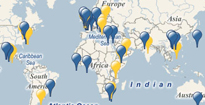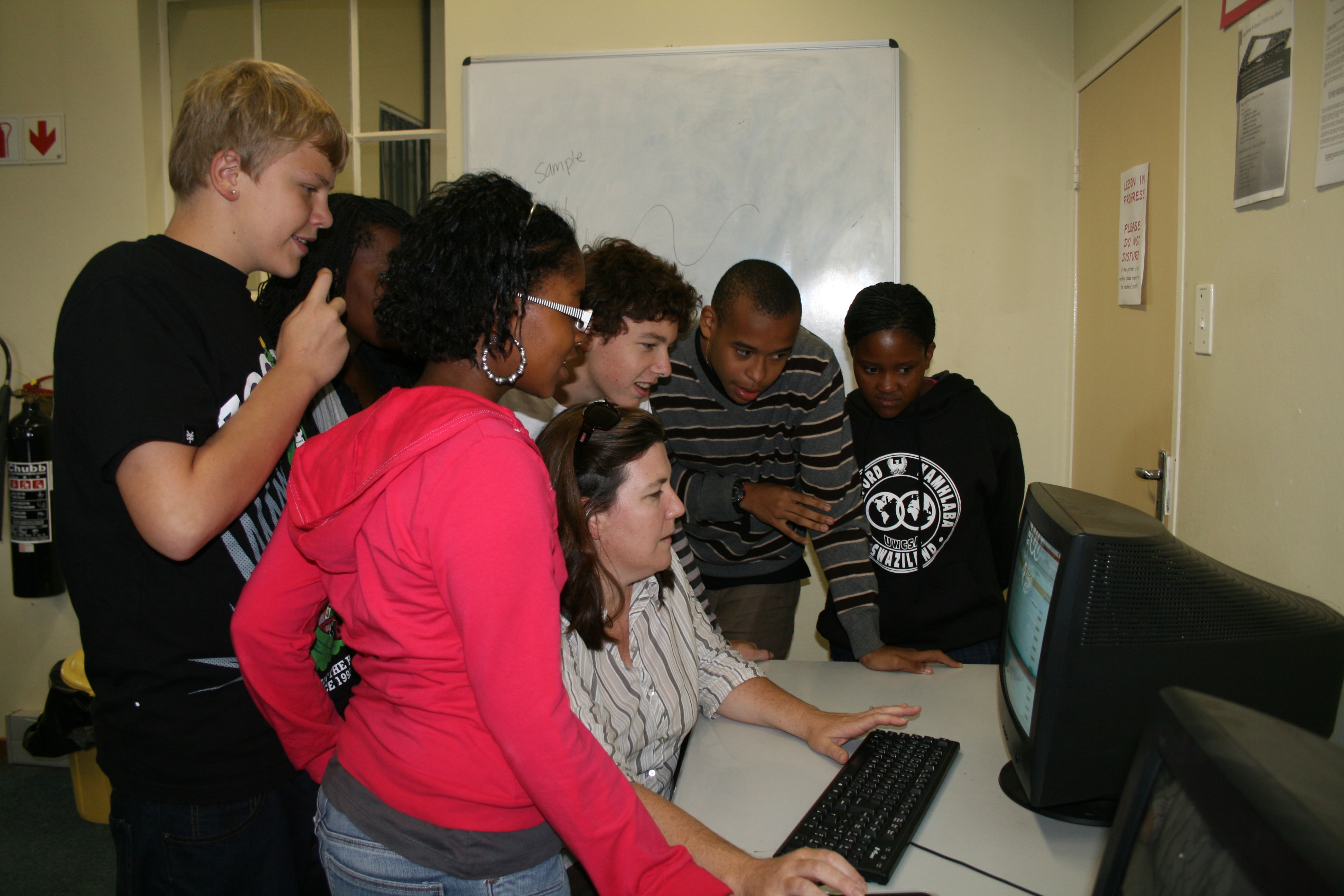
Schools around the world have been talking about the global financial crisis.
Did the G20 London Summit achieve as much as they hoped? What do young people want world leaders to do for their communities? Read comments from schools below.
See comments from schools around the world on the Cruncharama map.

AFRICA
We would ask the G20 to really focus on education because some people aren't getting any opportunities. There's this generation who are growing up, who have survived the Aids pandemic. We would tell the G20 that we can educate the whole world.
Waterford Kamhlaba UWC, Mbabane, Swaziland
The G20 leaders should make sure there is food security for everyone and support those who are trying to put food on the table. We can't compete with the world market, we need to be able to. The G20 should put more into developing countries.
Retief High School, Kestell, South Africa
I overheard my dad tell my mum that things are really hard and that he can't send all the children to the school so some will have to drop out. I would take the G20 to meet my school head, she would tell them how the economy has affected her students.
Wisdom Brook College, Lagos, Nigeria
AMERICAS
The families that are affected by the global financial crisis live where General Motors and Chrysler have made multiple layoffs. I would introduce the G20 to the young people and children in those families.
Glenforest Secondary School, Mississauga, Canada
My family situation has been really stressful lately. My parents can't afford to send me to the college I really want to go to. I would show the G20 leaders the poor people of Ocean City and how many students are worrying about money instead of school now.
Worcester Preparatory School, Berlin, Maryland, USA
In future, the crisis will increase unemployment which will result in rising poverty and social exclusion. Social and income inequality will generate violence that may erupt in the form of social unrest.
San Isidro School, Buenos Aires, Argentina

ASIA
Our lives have changed because the prices of farm products have reduced substantially, so farmers get less income. We would like to show the G20 leaders the increasing number of migrant workers who are returning home. The G20 should encourage investment in local factories to develop the economy.
Dai Dian Middle School in Chun Hua County, Shaan Xi Province, China
I want the G20 leaders to lead by example and address climate change - a problem that should be tackled immediately.
Springdales School, New Delhi, India
I would show the G20 leaders beggars in search of food in garbage disposals, filthy canals and along pedestrian tracks. Discussing the crisis should have been done long ago. Now we need solutions from the G20 London Summit.
Islamabad Convent School, Islamabad, Pakistan

EUROPE
I would show the G20 the Alexander Square in Berlin because you can often see teenagers who have no real life and who take drugs and drink alcohol. Their problem is that they are not motivated and don't see any future.The G20 should try to create new jobs. Of course it is not easy to solve these problems but the G20 has to take action.
Friedrich Ebert Oberschule, Berlin, Germany
I think the industrial countries, including the G20, should create more jobs related to environmental projects such as renewable energy.
Mirsa High School, Avrig, Romania
I would show the G20 leaders our basement where we keep wood in case there is another gas crisis. I would also show them people who lost their homes because they couldn't pay back their loans.
Fazekas Mihály Secondary Grammar School, Budapest, Hungary
MIDDLE EAST
The G20 should persuade countries to stop spending so much money on weapons and use the money to help improve their financial situations. That would do a lot for humanity and help people everywhere live peacefully.
Dhahran Ahliyya School, Dhahran, Saudi Arabia
My father works in the ministry of labour and has heard many complaints about organizations decreasing their wages by 50% or delaying paying their workers.
Wesgreen International School, Sharjah, United Arab Emirates
I would ask them to be the "G1" instead of the "G20" to show that they are one, so they can help each other. I don't think that they can do anything about the financial crisis. It is not a matter of money but a matter of time.
Bassam Schools, Ad Dammam, Saudi Arabia

UK
We believe that is imperative that people in more developed countries, such as the G20, realise the impact that this crisis has on the world's poorest and most vulnerable. If we are going to limit the reach of this catastrophe then we must take into account the views of young people.
Ysgol Dinas Bran, Llangollen
I would introduce the G20 to my mum who suffers from bipolar disorder. It affects her ability to work so I am classed as her carer. I would ask the leaders how they are going to assure me that the financial support my mum receives will remain constant.
Eastbourne Church of England Academy, Darlington
We are not too badly affected as our local nuclear plant, Sellafield, has always provided jobs and these jobs are surviving the financial crisis. But on Whitehaven high street shops are closing. I feel bad for today's youth. We will have to deal with the aftermath of the recession, yet we have not caused it.
St Benedict's High School, Whitehaven
How did they do that?
The Schools have been working with BBC World Class and their partners, The British Council, on the Cruncharama project.
You can see comments from schools around the world on the Cruncharama map.
You can also read in depth comments from schools on our showcase page and see video of children in Sierra Leone discussing the G20.
Join BBC World Class and our partners will help you twin.
The BBC is not responsible for the content of external websites.